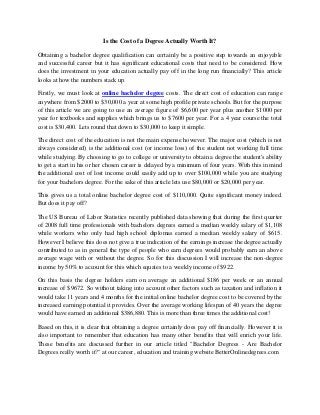Denunciar
Compartir
Descargar para leer sin conexión

Recomendados
Recomendados
Más contenido relacionado
Destacado
Destacado (20)
Product Design Trends in 2024 | Teenage Engineerings

Product Design Trends in 2024 | Teenage Engineerings
How Race, Age and Gender Shape Attitudes Towards Mental Health

How Race, Age and Gender Shape Attitudes Towards Mental Health
AI Trends in Creative Operations 2024 by Artwork Flow.pdf

AI Trends in Creative Operations 2024 by Artwork Flow.pdf
Content Methodology: A Best Practices Report (Webinar)

Content Methodology: A Best Practices Report (Webinar)
How to Prepare For a Successful Job Search for 2024

How to Prepare For a Successful Job Search for 2024
Social Media Marketing Trends 2024 // The Global Indie Insights

Social Media Marketing Trends 2024 // The Global Indie Insights
Trends In Paid Search: Navigating The Digital Landscape In 2024

Trends In Paid Search: Navigating The Digital Landscape In 2024
5 Public speaking tips from TED - Visualized summary

5 Public speaking tips from TED - Visualized summary
Google's Just Not That Into You: Understanding Core Updates & Search Intent

Google's Just Not That Into You: Understanding Core Updates & Search Intent
The six step guide to practical project management

The six step guide to practical project management
Beginners Guide to TikTok for Search - Rachel Pearson - We are Tilt __ Bright...

Beginners Guide to TikTok for Search - Rachel Pearson - We are Tilt __ Bright...
Unlocking the Power of ChatGPT and AI in Testing - A Real-World Look, present...

Unlocking the Power of ChatGPT and AI in Testing - A Real-World Look, present...
Is the cost of a degree actually worth it
- 1. Is the Cost of a Degree Actually Worth It? Obtaining a bachelor degree qualification can certainly be a positive step towards an enjoyable and successful career but it has significant educational costs that need to be considered. How does the investment in your education actually pay off in the long run financially? This article looks at how the numbers stack up. Firstly, we must look at online bachelor degree costs. The direct cost of education can range anywhere from $2000 to $30,000 a year at some high profile private schools. But for the purpose of this article we are going to use an average figure of $6,600 per year plus another $1000 per year for textbooks and supplies which brings us to $7600 per year. For a 4 year course the total cost is $30,400. Lets round that down to $30,000 to keep it simple. The direct cost of the education is not the main expense however. The major cost (which is not always considered) is the additional cost (or income loss) of the student not working full time while studying. By choosing to go to college or university to obtain a degree the student's ability to get a start in his or her chosen career is delayed by a minimum of four years. With this in mind the additional cost of lost income could easily add up to over $100,000 while you are studying for your bachelors degree. For the sake of this article lets use $80,000 or $20,000 per year. This gives us a total online bachelor degree cost of $110,000. Quite significant money indeed. But does it pay off? The US Bureau of Labor Statistics recently published data showing that during the first quarter of 2008 full time professionals with bachelors degrees earned a median weekly salary of $1,108 while workers who only had high school diplomas earned a median weekly salary of $615. However I believe this does not give a true indication of the earnings increase the degree actually contributed to as in general the type of people who earn degrees would probably earn an above average wage with or without the degree. So for this discussion I will increase the non-degree income by 50% to account for this which equates to a weekly income of $922. On this basis the degree holders earn on average an additional $186 per week or an annual increase of $9672. So without taking into account other factors such as taxation and inflation it would take 11 years and 4 months for the initial online bachelor degree cost to be covered by the increased earning potential it provides. Over the average working lifespan of 40 years the degree would have earned an additional $386,880. This is more than three times the additional cost! Based on this, it is clear that obtaining a degree certainly does pay off financially. However it is also important to remember that education has many other benefits that will enrich your life. These benefits are discussed further in our article titled "Bachelor Degrees - Are Bachelor Degrees really worth it?" at our career, education and training website BetterOnlinedegrees.com